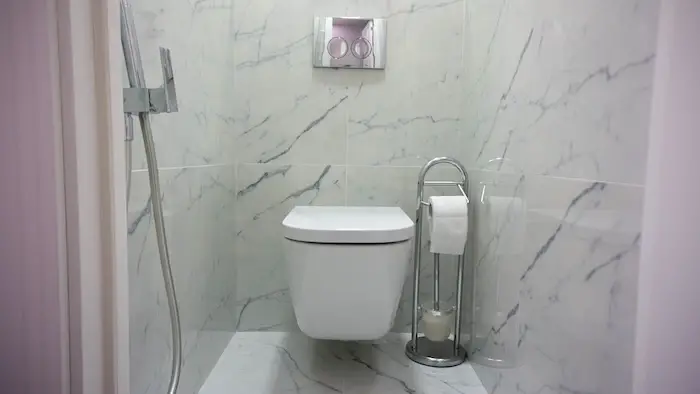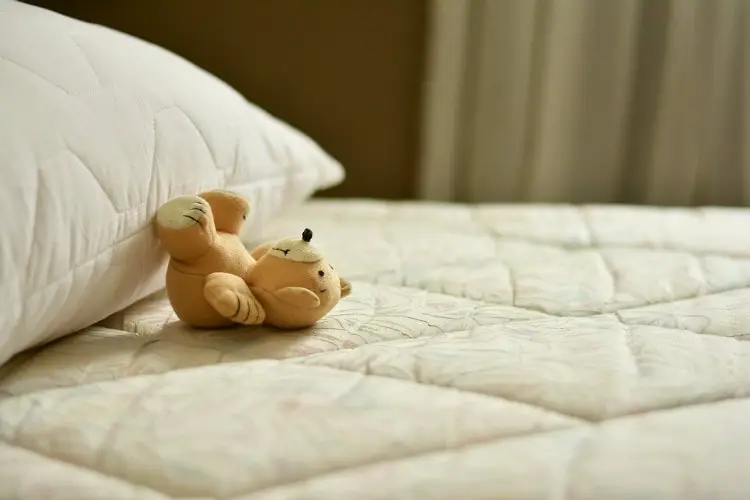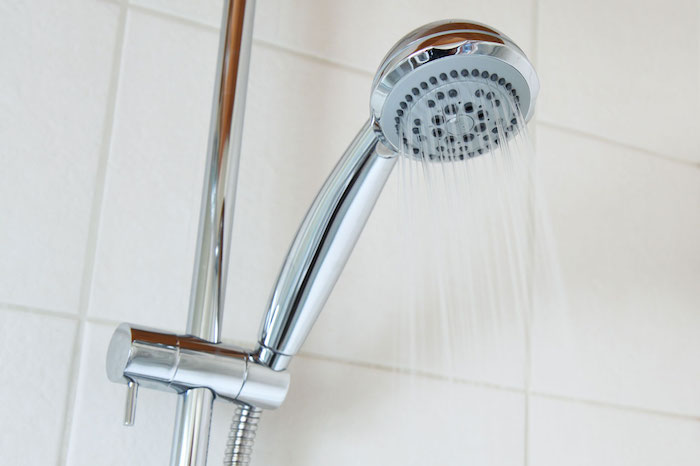Bidets have gained a lot of popularity due to the convenience they offer in personal hygiene maintenance. These plumbing fixtures are effective in cleaning the private parts of your body, especially right after excretion.
Now, how safe are bidets in bathrooms? Putting it out honestly, the only drawback amongst all its benefits is that there has not been enough research to understand their side effects. There have been multiple research studies in the past few years on usage of bidets.
For instance, you’ll find a study from 2013 that showcased bidets to be perfectly safe for pregnant women and how there was no harm of bacterial vaginosis for women using bidets.
On the other hand, one study in 2010 portrayed a slightly different take. It mentioned that constant usage of bidets over a period may disrupt the healthy bacterial flora. Thereby resulting in infection in the woman’s vagina.
Let’s start by looking at the main benefits to understand more on how bidets impact pregnant women, and how they affect one’s bowel movement.
Benefits of Bidets: The Reason Behind the Popularity
Before understanding whether bidets are safe or not, let’s dive into the details of their benefits first. One of the critical reasons that bidets are helpful is that they eliminate the need to use toilet paper.
Helps with Difficulty in Wiping
Bidets are effective for people who have difficulty reaching certain areas for wiping. These bathroom setups reduce any problem for people with arthritis or mobility issues, mainly prevalent in elders.
Gentle Cleansing
They are perfect for some gentle cleaning of your anus instead of wiping, which can cause chafing. Moreover, you risk getting fecal matter into your nails while using toilet paper. With minimal hand movement involved, bidets prevent this.
Environment-friendly
Less toilet paper use means a decrease in deforestation. Also, there are very high amounts of water, energy, and chemicals involved in the mass production of toilet paper. Using less of it reduces that as well. Therefore, using bidets involves no trees being cut and less water wasted.
Less Clogging
Using excessive toilet paper is not just harmful to the environment but your home clogging system as well. Moreover, if you use super-thick toilet paper, they take more time to dissolve. That means your pipes could remain clogged for a long time.
Cost-Saving
Toilet papers need to be renewed, so you need to spend hundreds of dollars annually on sanitation. Since bidets are usually a one-time investment with very minimum maintenance, your expenses go down. Also, you may need to replace them very rarely.
The Negative Effects of Using Bidets
Despite being a tool for safe sanitation, there have been speculations regarding the negative health impacts of bidets over the years. There have been reports that repetitive use of bidets daily can increase certain health risks.
Injuries
The studies are mostly done on bidets that come with high-pressure water jets. Using narrow water jets at high speed can cause sphincter injury, anal fissure, and even Mucosal prolapse syndrome, a form of rectal ulcers.
Vaginal Infections
Even women who use bidets regularly have a chance of damaging the natural microflora in their vaginas. In the long term, this can lead to bacterial vaginosis (BV). It has been found that the pathogen level and bacteria in the vagina of bidet users are relatively higher.
As you can see, bidets can reversely act to the very cause they are serving, sanitation. Of course, it also comes down to how frequently you are using bidets.
Bacterial infections
In countries like Japan and Korea, using a bidet is a common practice. In Japan, there was a study done over 292 toilet seat samples collected from a university-affiliated hospital. Among them, 86.9% were found to be contaminated with one or multiple types of bacteria.
The worst part is that the samples were collected from the warm-water nozzles of different bidet toiles. Still, this happened in a protected hospital setting due to multiple people sharing the same toilets.
Burns and Cuts
Very few cases have been noticed where severe burning on the genital and perianal areas was caused by hot water jets. This is most common in older adults since they have reduced anal sensitivity to the temperature.
There are a few instances of being cut from broken ceramic bidets. When this happens to older people, things can become complicated, even from a minor injury.
How to Use Bidets More Safely?
A great way to reduce the chances of burns, cuts, and injury from a bidet is to control the water temperature and pressure. By reducing the high force water flow and alternating pressure between uses, you can prevent injuries.
Also, you can avoid any bidet with narrow water jets. It has been seen that using warm water instead of hot water also reduces the chances of injury.
Simultaneously, you have to stop using shared bidet toilets, especially in public places. This is more important for women. Also, you should avoid cleaning around the urethra.
You need to be very smart while using the vagina wash function of the bidet, as it can potentially damage and alter your microflora. Some bidet manufacturers even claim that not cleaning around the urethra reduces UTIs. However, there is not enough evidence for that.
Additional Benefits of Using Bidets
Not all is bad news, though. Using bidets smartly has numerous health benefits, especially if you are suffering from the following medical conditions.
Hemorrhoids
Bidets actually can help remove bacteria better than traditional toilet seats and toilet paper. The high-pressure water used moderately can also give you a refreshing feel. Of course, the results will vary between habitual and non-habitual users.
Just as higher pressure can damage your anus, moderate use can relieve you from that. It has been noticed that using bidets can actually relieve you from anal pressure. For patients suffering from hemorrhoids, this is a blessing. However, consult with your physician first.
Anal Fissure
Bidets can be helpful if you are suffering from anal fissure. In such conditions, using dry toilet paper can only cause more pain and infection. With a few flushes from a bidet, you can gently remove the residues.
Rectal Prolapse
Rectal prolapse can be mild or advanced, where the rectum may protrude from the anus. Wiping in such scenarios can be extremely painful. Gentle wash from a bidet can reduce discomfort and also help keep your anal region clean.
Gastrointestinal Disorders
The gastrointestinal disorder causes frequent bowel movements, like irritable bowel syndrome and Chron’s disease. When you suffer from inflammatory bowel diseases, you may need to visit the restroom more frequently. Bidets can give you a naturally comfortable washing.
Anal Itching
Many factors can cause anal itching or inflammation — reaction to certain foods, worm infection, moisture, and skin sensitivity. Rubbing your anus with your fingers may only spread more damage if the area is infected. Also, using paper towels can cause irritation.
Bidets can serve you well in many ways in such situations. If you have inflammation, then the water can give you comfort. Also, the waters jets can help you clean your area without having to touch it yourself. Moreover, using warm water will reduce your irritation.
Frequently Asked Questions
1. Can Men Use Bidets?
Yes, they can. Although bidets are primarily used to maintain feminine hygiene, especially during pregnancy and menstruation, men can use them too. In fact, it is a much more hygienic option than using toilet paper.
2. Do I Need to Wipe After Using a Bidet?
Ideally, you do not require wiping after using a bidet since it does the cleaning for you. However, leaving the area moist can produce bacteria and cause infection.
So, you can either gently wipe your private area after washing it with a bidet. Or, you can simply pick one that comes with the air-drying feature if you don’t want to drip dry.
3. Can Sharing Bidets Cause Infection?
Sharing a bidet is no different than sharing a public restroom, and the chances of catching an infection in both are minimal. Also, many bidets today come with self-cleaning features. Therefore, you can be pretty sure that they are safe.
See Also:
Can You Install TOTO WASHLET On Any Toilet?
What Does A Bidet Feel Like? READ THIS FIRST!
Does Poop Really Get Everywhere?: Banishing Bidet Myths
8 Best Toilets For Not Clogging


